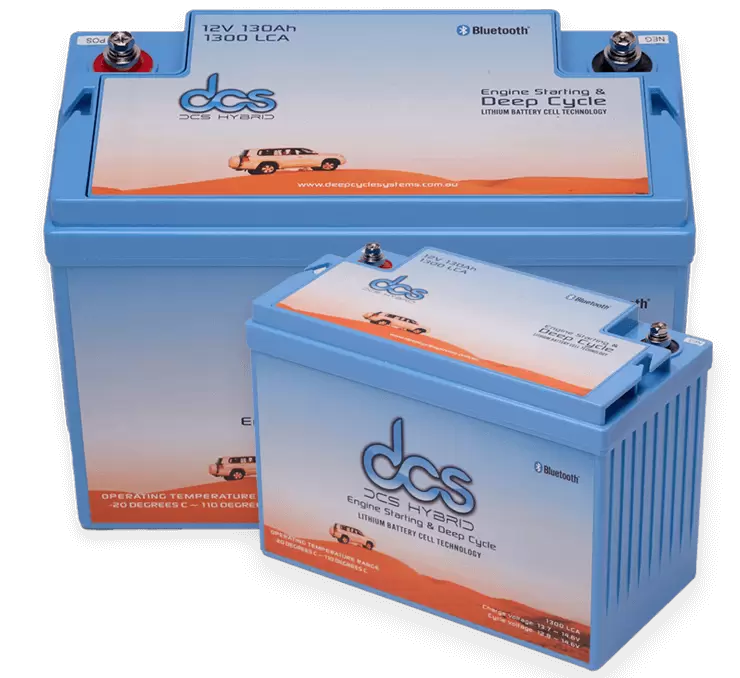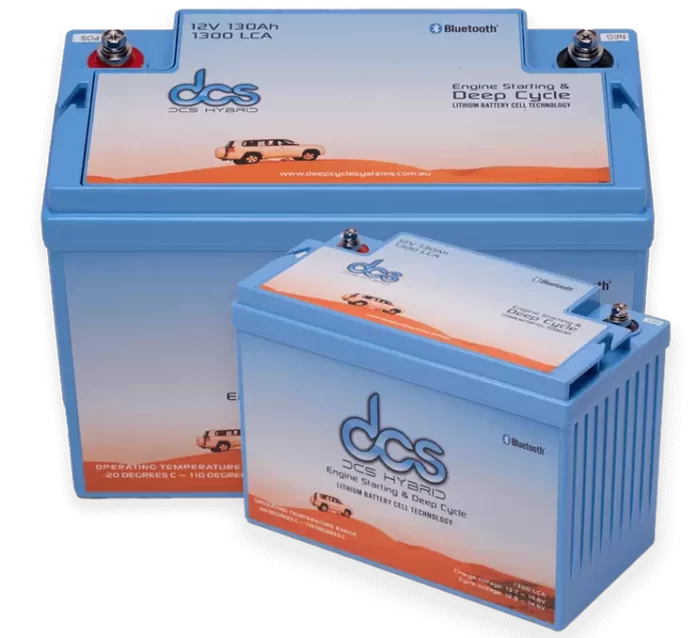In recent years, 12V Battery Lithium technology has revolutionized renewable energy sources like solar and wind power. That powerful battery has been developed to provide high-efficiency storage and discharge capabilities while taking up a fraction of the space of traditional batteries. 12V Lithium Ion and Deep Cycle batteries are leading the way in sustainable energy solutions, allowing homeowners, businesses, and governments alike to reduce their reliance on non-renewable energy sources. In that blog post, will look at how 12 V Battery Lithium is transforming how they power the lives.
Understanding Lithium-Ion Batteries
Lithium-ion batteries have become increasingly popular due to their exceptional performance and reliability. Understanding how these batteries work is crucial for harnessing their full potential in renewable energy applications.
At the heart of a lithium-ion battery is the movement of lithium ions between two electrodes, the cathode, and the anode. Lithium ions flow from the cathode to the anode during charging, and during discharging, they move back from the anode to the cathode.
One of the key advantages of lithium-ion batteries is their high energy density. That means they can store a significant amount of energy in a compact size, making them ideal for applications where space is limited, such as in solar power systems.
The Benefits Of 12v Lithium Ion Battery
Lithium-ion batteries have revolutionized the renewable energy industry, and the benefits of 12V lithium-ion batteries are no exception. These powerful batteries offer numerous advantages, making them an ideal choice for powering renewable energy systems.
One of the key benefits of 12v lithium ion battery is their high energy density. Despite their compact size, these batteries can store significant energy, making them perfect for applications where space is limited, such as in solar power systems.
Another advantage of 12V lithium-ion batteries is their ability to handle high charge and discharge rates. That means they can quickly store energy when available, such as during peak sunlight hours, and release it when needed, providing a reliable and efficient power source.
Applications Of 12 Volt Lithium Battery In Renewable Energy
With its exceptional performance and reliability, the 12 volt lithium battery has become essential in various renewable energy applications. Let’s explore some of the key applications where that battery technology is making a significant impact.
One of the primary uses of 12 volt lithium batteries is in solar power systems. These batteries play a crucial role in storing the energy generated by solar panels during the day and releasing it when the sun is not shining.
In addition to solar power systems, 12 volt lithium batteries are also used in wind power systems. They store the excess energy generated by wind turbines during high-wind periods and release it when the wind is calm.
Differences Between 12V Lithium-Ion And 12 Volt Deep Cycle Batteries
When it comes to renewable energy systems, understanding the differences between 12V Lithium-ion and 12 Volt Deep Cycle batteries is essential. While both are powerful and efficient, they have distinct characteristics that make them suitable for different applications.
One of the main differences lies in their design and construction. 12V Lithium-ion batteries are known for their high energy density, allowing them to store a significant amount of energy in a compact size. That makes them ideal for limited space applications, such as in solar power systems.
Another difference is in their charging and discharging capabilities. 12V Lithium-ion batteries can handle high charge and discharge rates, making them suitable for applications requiring quick energy storage and release.
 Tips For Choosing The 12 Volt Deep Cycle Battery
Tips For Choosing The 12 Volt Deep Cycle Battery
When choosing the right 12 volt deep cycle battery for your renewable energy system, there are a few key factors to consider. Here are some tips to help you make an informed decision:
Determine your energy needs
Start by calculating your energy requirements. Consider factors such as the power consumption of your appliances and devices and the duration you need the battery to provide power. That will help you choose a battery with the right capacity to meet your energy needs.
Consider the battery’s cycle life
Cycle life refers to the number of charge and discharge cycles a battery can undergo before its performance degrade. Look for batteries with a high cycle life, as that will ensure that your investment lasts for a long time.
Evaluate the battery’s depth of discharge
The depth of discharge (dod) is the percentage of the battery’s capacity that can be safely used without damaging the battery. A battery with a higher dod will provide more usable energy and a longer runtime.
Assess the battery’s charging efficiency
Charging efficiency refers to how efficiently the battery can convert incoming energy into stored energy. Look for batteries with high charging efficiency, minimizing energy loss during charging and maximizing the battery’s capacity.
Consider the battery’s size and weight
The size and weight of the battery are important factors to consider, especially if you have limited space or need to be portable. Opt for a battery that balances capacity and size well, ensuring it fits your specific requirements.
Maintenance And Safety Tips For 12v Deep Cycle Battery
When it comes to maintaining and ensuring the safety of your 12v deep cycle battery, there are several important tips to keep in mind. Following these guidelines will not only help extend the lifespan of your battery but also keep you and your renewable energy system safe.
First and foremost, it’s crucial to regularly inspect your battery for any signs of damage or wear. Look for corrosion on the terminals, loose connections, or any physical damage to the battery casing. If you notice any issues, immediately address them, such as cleaning the terminals or replacing damaged parts.
Charging Your Battery
Regular cleaning of your battery is another maintenance tip to consider. Use a clean cloth or brush to remove dirt or debris from the battery terminals. That will help maintain good contact and prevent corrosion, ensuring optimal performance.
Safety is paramount when it comes to handling 12v deep cycle batteries. Always wear appropriate personal protective equipment, such as gloves and goggles, when working with batteries.
It’s important to use a charger specifically designed for deep cycle batteries when charging your battery. Follow the manufacturer’s instructions for charging voltage and duration to avoid overcharging or undercharging, which can damage the battery.
Finally, never attempt to disassemble or modify the battery yourself. Leave any repairs or maintenance to a trained professional who can safely handle the battery.
Maximizing The Lifespan Of Your 12V Lithium Battery
Maximizing the lifespan of your 12V lithium battery is essential for getting the most out of your investment and ensuring a reliable power supply for your renewable energy system. With proper care and maintenance, you can extend the life of your battery and avoid costly replacements.
One important tip for maximizing the lifespan of your 12V lithium battery is to avoid deep discharges. While lithium batteries have a high depth of discharge (dod), repeatedly discharging the battery to its maximum capacity can shorten its lifespan.
Avoid Exposing The Battery
Another key factor in battery lifespan is temperature. Extreme temperatures can significantly impact the performance and longevity of your battery. It’s important to store your battery in a cool and dry location, away from direct sunlight and extreme heat or cold.
Regularly monitoring the voltage of your battery is also crucial for maximizing its lifespan. If the voltage drops below a certain threshold, it can cause irreversible damage. By monitoring the voltage regularly and ensuring it stays within the recommended range, you can prevent that damage and extend the life of your battery.
Lastly, proper charging and maintenance are essential for prolonging the lifespan of your 12V lithium battery. Always use a charger specifically designed for lithium batteries, and follow the manufacturer’s instructions for charging voltage and duration.
Future Trends In 12V Lithium-Ion Batteries
The future of 12V lithium-ion batteries looks promising as technology continues to advance. Here are some exciting trends to look out for:
- Increased energy density: Researchers are constantly working to improve the energy density of lithium-ion batteries, allowing them to store even more energy in a compact size.
- Longer lifespan: The lifespan of lithium-ion batteries is already impressive, but there are ongoing efforts to further extend their longevity. That means that in the future, they can expect batteries to last even longer, reducing the need for frequent replacements and ultimately reducing waste.
- Faster charging capabilities: One area of improvement for lithium-ion batteries is charging speed. Researchers are exploring ways to enhance the charging capabilities of these batteries, allowing them to be charged faster and more efficiently.
- Integration with smart grid technology: As renewable energy systems become more advanced, batteries need to integrate seamlessly with smart grid technology.
- Enhanced safety features: Safety is always a top priority regarding battery technology. In the future, they can expect to see even more advanced safety features incorporated into lithium-ion batteries, such as improved thermal management systems and better protection against overcharging and short circuits.
FAQs
Q: How Long Do 12V Lithium-Ion Batteries Last?
A: 12V lithium-ion batteries have a longer lifespan than other battery technologies. Proper maintenance and care can last for thousands of cycles, making them a cost-effective choice in the long run. The exact lifespan of a 12V lithium-ion battery will depend on various factors, such as the specific brand, usage patterns, and charging habits.
Q: Are 12V Lithium-Ion Batteries Safe?
A: Yes, 12V lithium-ion batteries are generally considered safe when handled and used properly. However, following safety guidelines to minimize the risk of accidents or damage is important. That includes avoiding overcharging or undercharging the battery, storing it in a cool and dry place, and avoiding exposure to extreme temperatures or moisture.
Q: Can I Use A 12V Lithium-Ion Battery For My Off-Grid Power System?
A: 12V lithium-ion batteries are commonly used in off-grid power systems. These batteries provide a reliable and efficient power source for remote areas or locations without access to the electrical grid. They can power essential appliances, lighting, and other devices, allowing people to live comfortably even in off-grid locations.
Q: Can I Replace My Traditional Lead-Acid Battery With A 12V Lithium-Ion Battery?
A: Yes, replacing a traditional lead-acid battery with a 12V lithium-ion battery in certain applications is possible. However, it’s important to consider factors such as compatibility and voltage requirements. Consult a professional or refer to the manufacturer’s guidelines to ensure a 12V lithium-ion battery suits your needs.
Conclusion
In that blog post, we have explored the transformative power of 12 V Battery Lithium in renewable energy. We have seen how that advanced technology is revolutionizing how we power the lives and reducing the reliance on non-renewable energy sources. Lithium-ion batteries, with their high energy density, high charge and discharge rates, and long lifespan, have emerged as a leading solution for storing and delivering energy in renewable energy systems. The benefits of 12V lithium-ion batteries, including their compact size and reliability, make them an ideal choice for applications such as solar, wind, off-grid, and electric vehicles.



